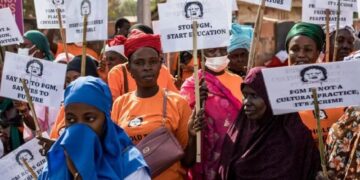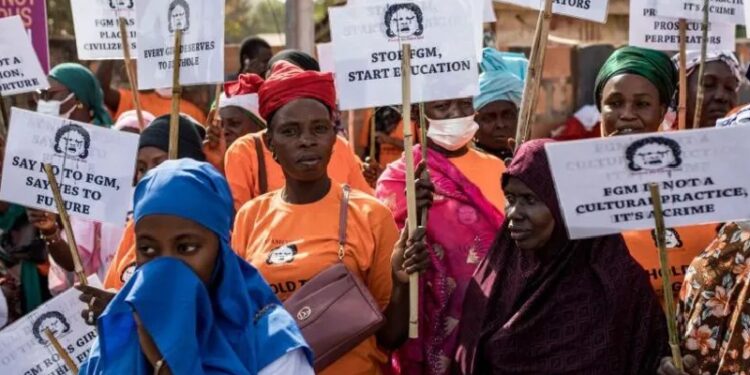By Enyichukwu Enemanna
Dozens of persons have taken to the streets of The Gambia to protest the death of a baby girl after her genital was mutilated.
The two-month old unnamed baby was rushed to a hospital in the capital, Banjul, after she developed severe bleeding, but was pronounced dead on arrival, police said.
Female Genital Mutilation (FGM), which entails cutting or total removal of a female’s external genitalia has been outlawed in The Gambia since 2015, with fines and jail terms of up to three years for perpetrators, and life sentences if a girl dies arising from the process.
Since 2023, the West African nation has only recorded two prosecutions and one conviction.
Though autopsy is still ongoing to ascertain the cause of the girl’s death, many people have attributed it to FGM.
“Culture is no excuse, tradition is no shield, this is violence, pure and simple,” a leading non-governmental organisation, Women In Leadership and Liberation (WILL), said in a statement in reaction to the development.
According to a police source, two women have been arrested over their alleged involvement in facilitating the FGM.
The parliamentarian representing Kombo North District where the incident happened emphasised the need to protect children from harmful practices that rob them of their health, dignity, and life.
“The loss of this innocent child must not be forgotten. Let it mark a turning-point and a moment for our nation to renew its unwavering commitment to protecting every child’s right to life, safety, and dignity,” Abdoulie Ceesay said.
Heritage Times HT reports that The Gambia is among the 10 countries with the highest rates of FGM, with 73% of women and girls aged 15 to 49 having undergone the procedure, with many doing so before the age of six years.
FGM is banned in more than 70 countries globally but continues to be practised particularly in Africa’s Muslim-majority countries, such as The Gambia.




































